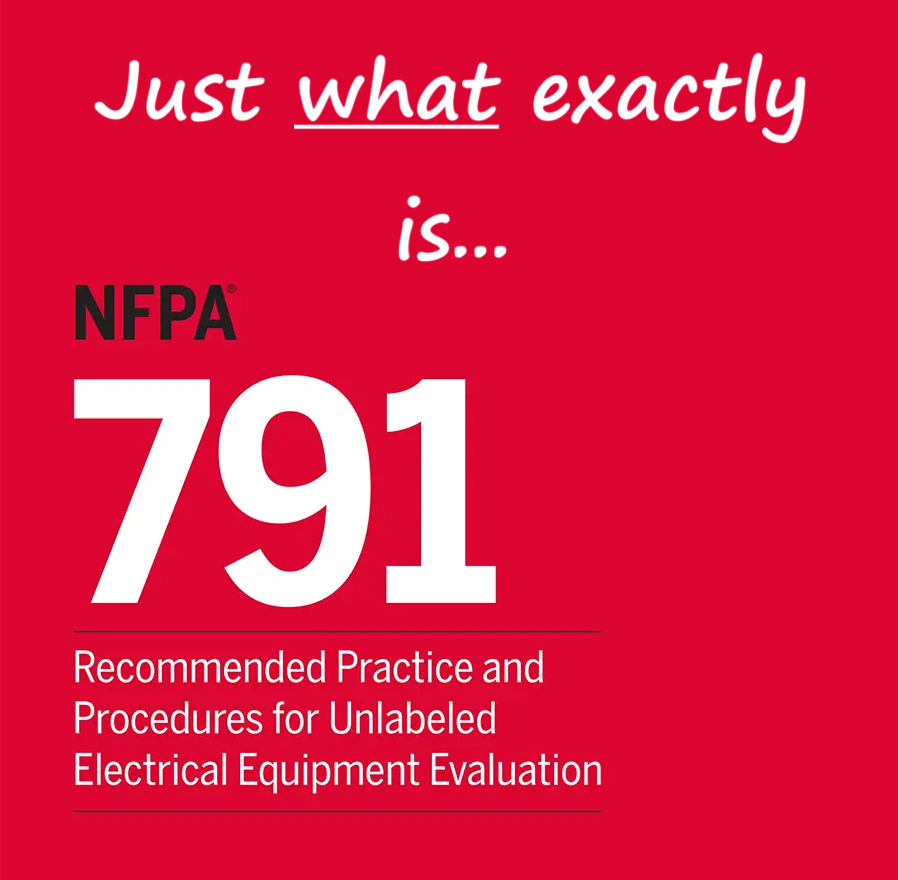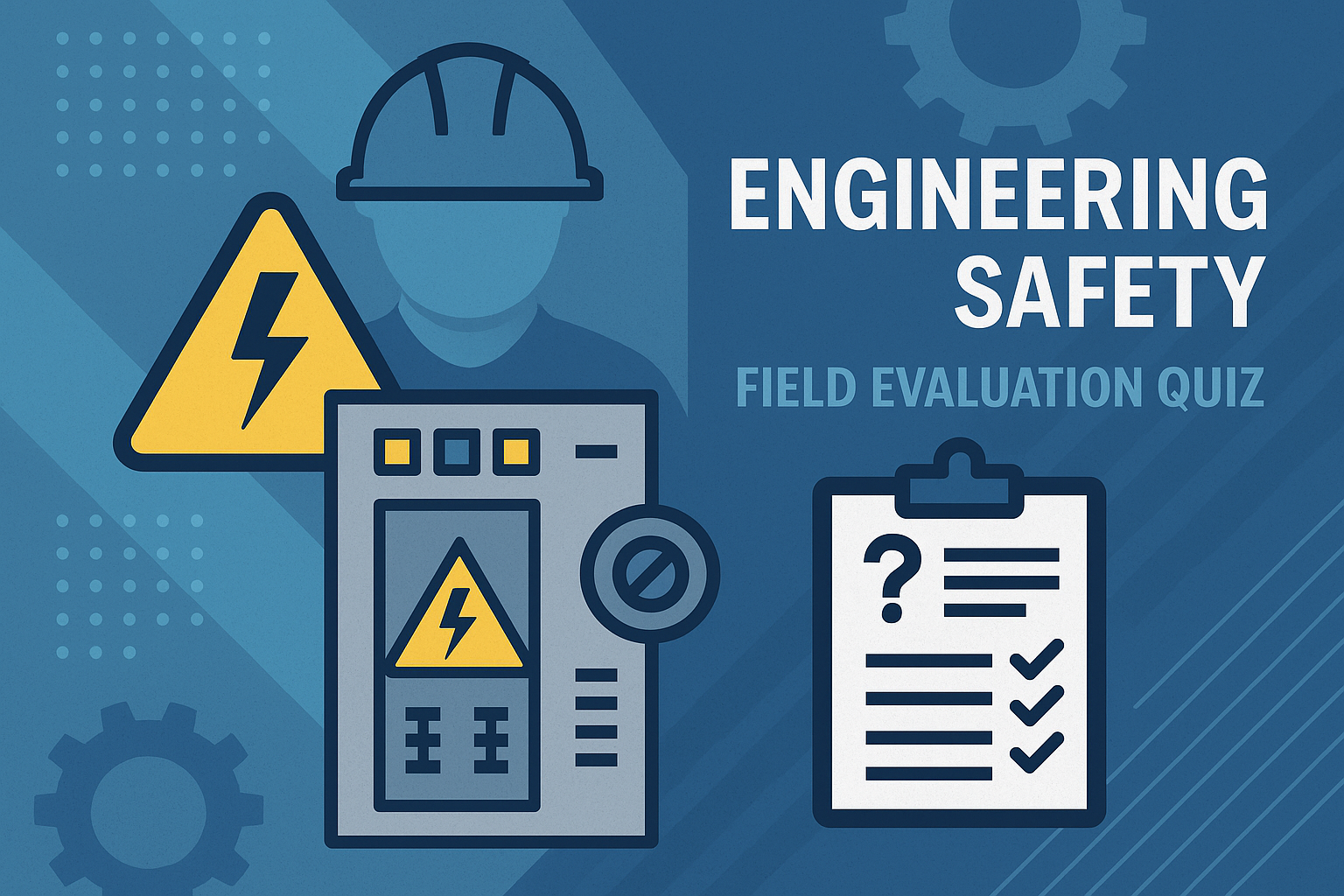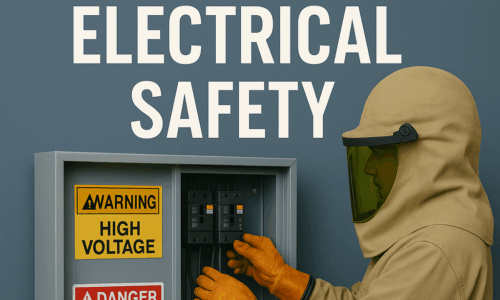Just What Exactly is NFPA 791?
Have you ever walked into a facility, saw a piece of electrical equipment, and wondered, “Is this safe”?
You may also have wondered if any person or company has actually checked this piece of equipment to make sure it complies with safety standards. Well, wonder no more!
NFPA 791, otherwise formally known as the Recommended Practice and Procedures for Unlabeled Electrical Equipment Evaluation, is the guiding document for providing just that level of knowledge and process to companies like Lewis Bass to perform these types of equipment safety evaluations. Are you interested in learning more how NFPA 791 provides this level of assurance to our clients in the field? This week’s blog post covers exactly that.
NFPA 791 in a Nutshell
NFPA 791 serves a pretty specific, yet essential role. This document lays out the guidelines and processes for evaluating unlabeled or non-certified electrical equipment. Imagine a piece of equipment in your facility that hasn’t gone through the typical NRTL in-factory certification process—it’s here that NFPA 791 steps in, ensuring this equipment still meets the necessary safety standards.
What’s particularly fascinating about NFPA 791 is that it’s not just a one-size-fits-all rulebook. Instead, it offers procedures to ensure the evaluation of electrical equipment is done safely and consistently, even if the equipment didn’t follow traditional certification paths.
The Origins of NFPA 791
NFPA 791 was developed by the Technical Committee on Electrical Equipment Evaluation, organized by the National Fire Protection Association (NFPA). The committee realized that many pieces of electrical equipment used in the field don’t always fit neatly into standard certification processes. The reasons could vary—some are custom-made, others are modified, or sometimes, they’ve simply been installed at the site before they can go through a traditional certification process.
The NFPA saw the need for a standardized evaluation method for these products, ensuring they’re safe for use while acknowledging that they may not meet traditional certification methods. Enter NFPA 791, providing a rigorous but flexible system for evaluating these products.
Why Is It Important?
Think about it: Electrical equipment that doesn’t go through typical certification is still widely used. Maybe it’s a one-off custom build, or maybe it’s an older machine no longer in production. If this equipment isn’t evaluated, it could lead to significant safety hazards like electrical shocks, fires, or even explosions.
NFPA 791 ensures these non-standard pieces of equipment are evaluated using recommended practices to safeguard users and facilities. This evaluation is crucial not only for regulatory compliance but also for peace of mind—knowing that the equipment in your facility is safe to use, even if it hasn’t gone through the usual certification process.
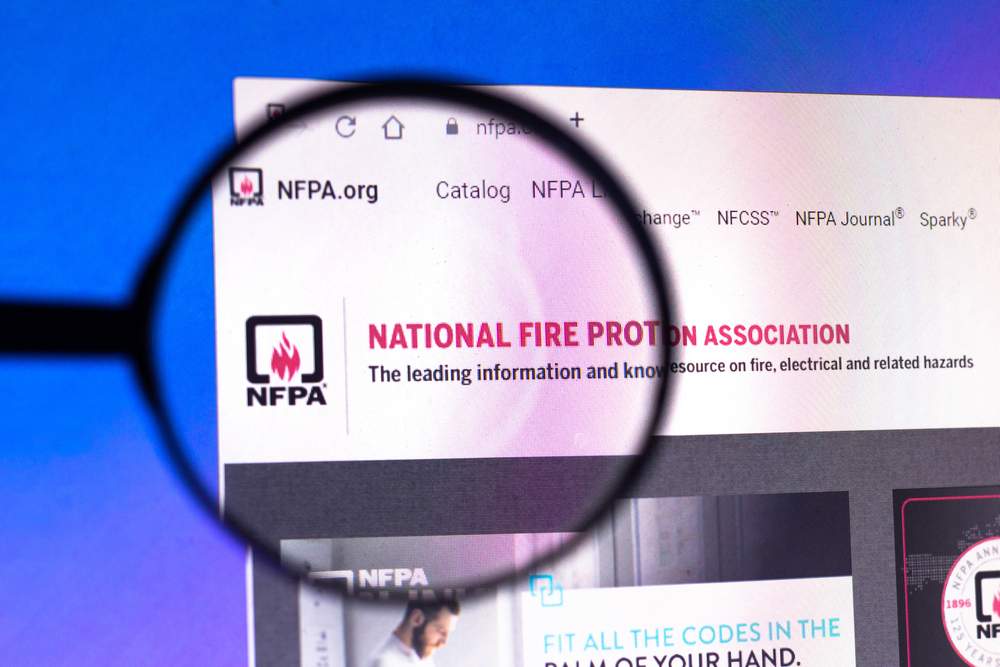
What Does the Evaluation Process Look Like?
The NFPA 791 process isn’t just a casual glance at equipment to ensure it’s working; it’s much more thorough.
Here’s an overview of what goes into an evaluation:
- Pre-site preparation: Before an evaluation even begins, evaluators gather essential information such as layout drawings, schematics, and a bill of materials. These documents help evaluators understand the equipment’s design and functionality before they set foot on-site.
- Construction inspection: This is where the physical aspects of the equipment are checked. The evaluator ensures that enclosures are properly constructed, overcurrent protection is adequate, and the equipment follows the electrical code’s requirements.
- Electrical testing: Equipment is put through a series of electrical tests. This could include insulation resistance tests, ground continuity checks, or even temperature rise testing to ensure the equipment doesn’t overheat during use.
- Reporting and documentation: Once the evaluation is completed, a comprehensive field report is generated, detailing whether the equipment meets all required safety standards. This report also highlights any discrepancies and offers recommendations for corrective actions if necessary.
- FEB labeling: If the equipment passes all evaluations, it receives a Field Evaluation Body (FEB) label, signifying that the equipment is deemed safe according to the NFPA 791 guidelines.

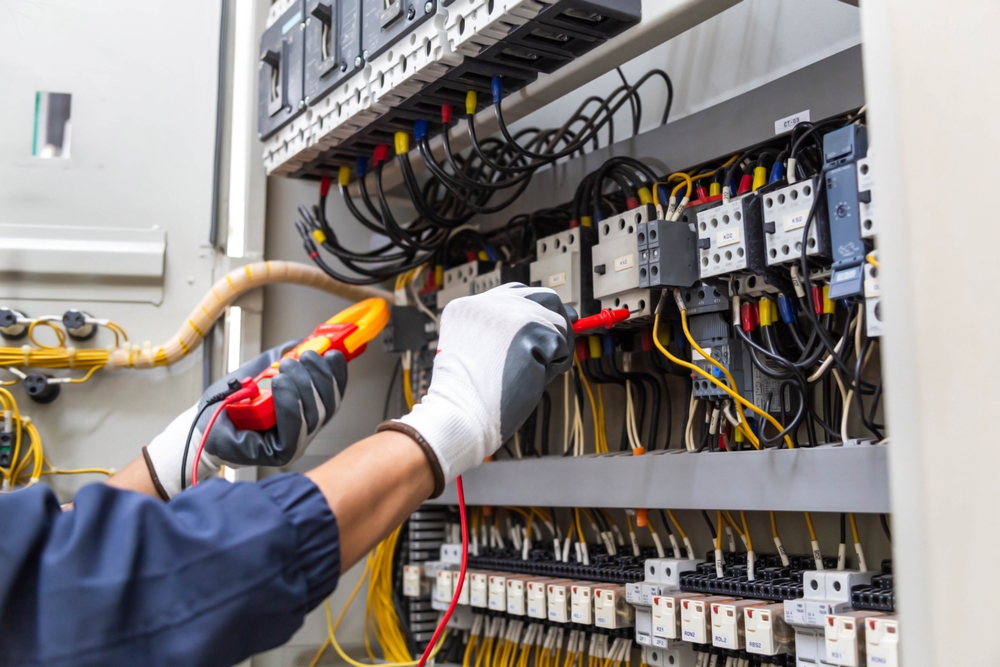
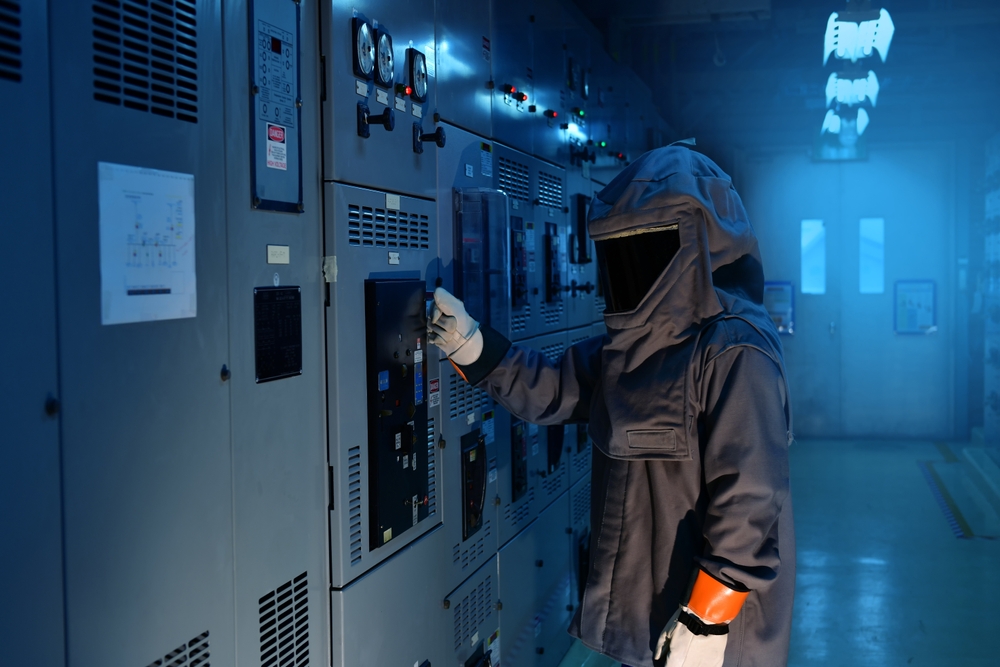
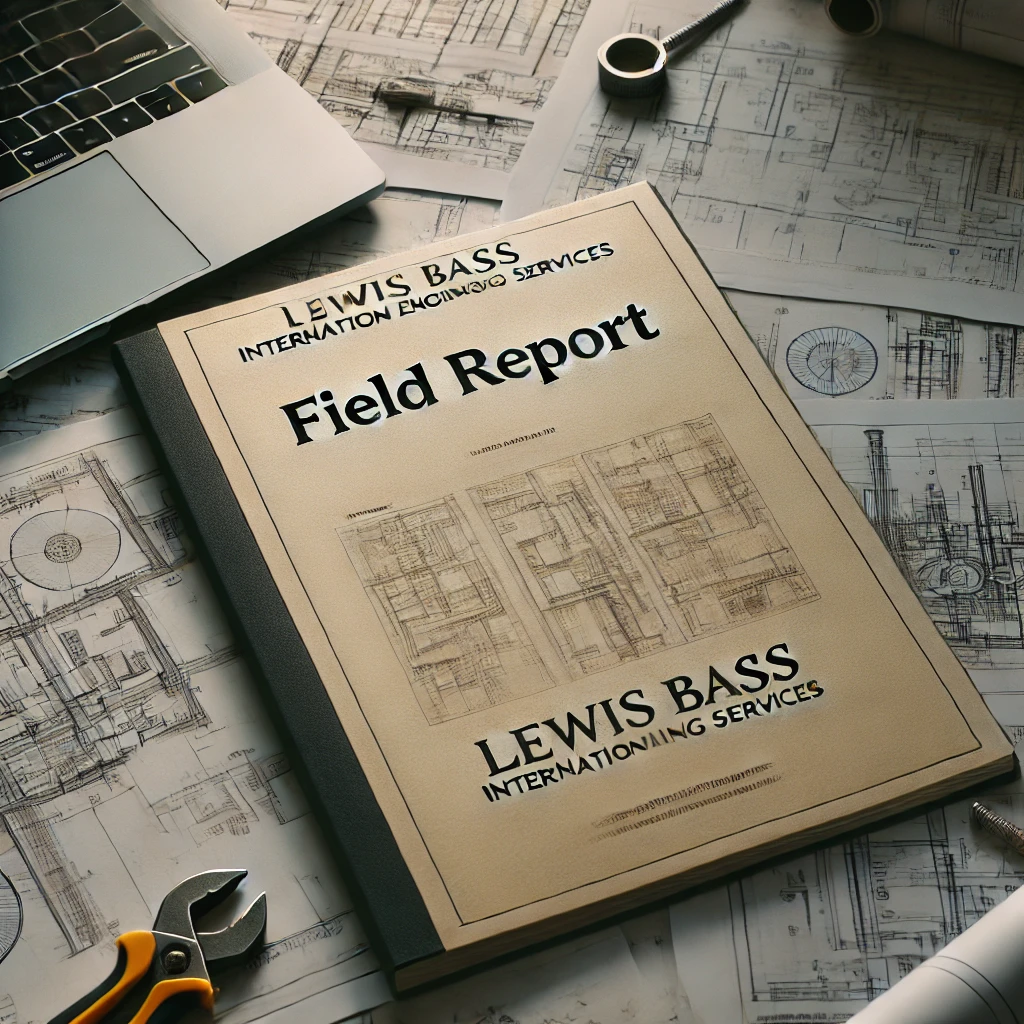
What Makes NFPA 791 Different?
You might be wondering how NFPA 791 differs from other standards, like those that cover product certification. The main distinction lies in the type of equipment it addresses. Traditional certifications, like those from Underwriters Laboratories (UL), are often applied to mass-produced products that are tested in labs before they ever reach a customer. NFPA 791, on the other hand, deals specifically with equipment that hasn’t gone through this process—often because it’s been installed at the site or is a custom or one-off build.
So while product certifications are essential for off-the-shelf items, NFPA 791 fills a crucial gap for those unique pieces of equipment that don’t fit the standard mold. It’s an adaptable, real-world solution for ensuring safety, even when traditional certification isn’t possible.
Who Uses NFPA 791?
NFPA 791 is typically used by third-party evaluators known as Field Evaluation Bodies (FEBs). These are experts who specialize in electrical equipment evaluation and have the authority to assess whether a piece of equipment is safe to use. In some cases, authorities having jurisdiction (AHJs)—such as local building inspectors—may require NFPA 791 evaluations to ensure equipment complies with local codes and standards.
For companies, using NFPA 791 is a way to ensure compliance with safety standards while continuing to use custom or modified equipment. It’s especially helpful in industries where specialized equipment is often developed or altered after installation.
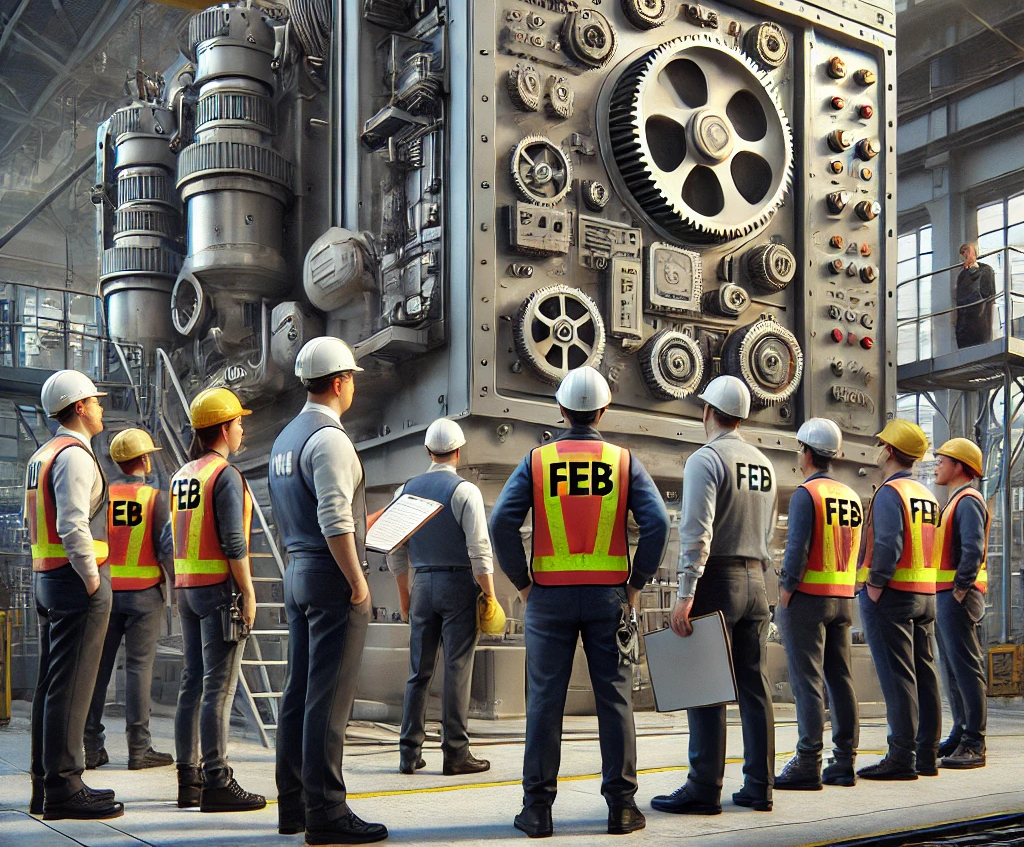
Do you have a need for our services?
Lewis Bass can help your team identify the most common safety issues in your facility, along with providing immediate referrals to our trusted partners to address them on your behalf.
Not sure what service you need from us?
Take our service identifier quiz here.
Are you uncertain if your equipment is unlisted or not at your facility?
Lewis Bass has you covered here as well: download our unlisted equipment self-identification flyer here.
Do you have a need for an urgent machinery evaluation?
Please reach out to us using our contact form here or call/text us directly on our office line 408-942-8000. We are always available to help with rush jobs and permit-blocking safety situations at your facility.
